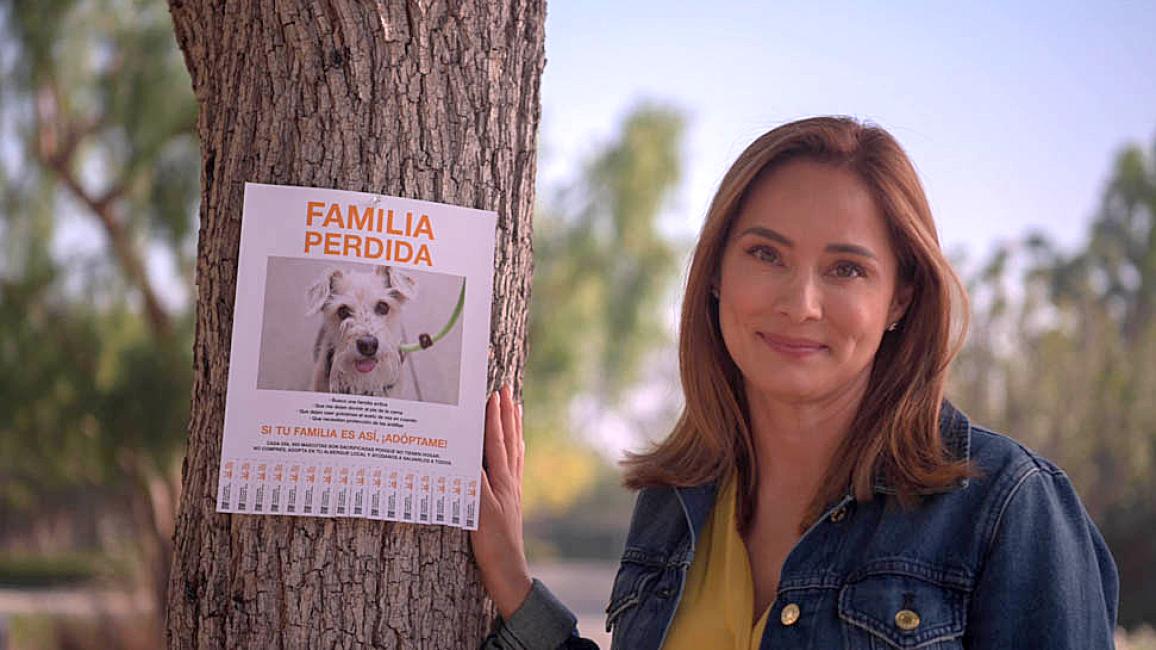Best Friends launches Spanish language campaign

December is a month for reflection, and one of celebration at Best Friends, as we reveal our first Spanish-language TV public service announcement (PSA) and continue to build on the multilingual work that we began earlier this year.
As part of our commitment to achieve no-kill nationwide by 2025, we as an organization recognized that we had to expand our lifesaving messages to reach more multicultural communities around the nation. Focusing on one marketing message for all communities, and in one language, wasn’t going to accomplish the level of lifesaving we needed.
Why focus on Hispanic/Latine audiences? Because while our lifesaving work touches thousands of communities across the country, the two states with the biggest lifesaving gaps — California and Texas — are home to the largest Latine populations in the country. More than 17 million Hispanics live in the two states and make up just over 40% of the population. And the Hispanic population in the U.S. overall is close to 20% and growing.
Though the Latine population in the U.S. is rich and diverse, and the Spanish language may have different nuances from one Spanish-speaking country to another, for millions of Latines, the Spanish language is a common bond. For many, Spanish is still their language of choice for news and other content.
Last year, we partnered with Casanova/McCann, an award-winning multicultural agency experienced in marketing to Latines. With their help, this year we launched our first-ever Best Friends integrated Spanish-language campaign, kicking it off with a new Best Friends website (bestfriends.org/es) and social media channels in Spanish: Best Friends en espanol on Facebook and Instagram.
The creative for our new PSA campaign, called Familia Perdida, is especially smart and sweet, taking a different approach to a “lost dog” flyer. We’ve all seen them, and many of us have been involved in searches for missing pets in one way or another. For the Spanish campaign, though, we’ve flipped the circumstances: Dogs in shelters are ready and waiting; what’s missing is the family. The creative focuses on answering the question “Are you the missing family?” and asking people to adopt from their local shelters. We were very fortunate and delighted to have actress Jacqueline Piñol star in the PSA along with her own rescue dog, Huckleberry.
Our primary goal is to connect more potential pet adopters to our shelters and rescue organizations, where they can meet with staff and get resources, as well as find new furry family members. Our Spanish-language research and focus groups revealed that many Latines don’t know where their local shelter is or what happens there. Those who already have pets aren’t aware that their local shelter could be a resource for low-cost vaccinations and spay/neuter services.
Our nation’s shelters are overwhelmed and many are understaffed, so expanding our reach is not only the right thing to do, it’s imperative to help solve this crisis. Our communities want to be a part of the solution, and our Spanish-language campaign will allow more community members to participate in lifesaving work.
Our multicultural marketing campaign officially launched in August and is only the beginning of our efforts in Spanish. The messaging and marketing components will continue to evolve and expand into more markets as we work closely with our partners to meet their needs.
We have a lot to be proud of here. As an organization, we have not only continued to grow in diversity, equity and inclusion, we’ve created the foundation to reach new audiences and expand our work to those who may not have heard about us yet. We will continue to look at all our multicultural marketing and outreach efforts through cultural lenses to be more relevant and effective in our communications.
I’ve said this before, but I’ll say it again because I think it’s so important: Our success will always lie in the kindness and compassion of pet lovers. Now, we can bring lifesaving information to communities of animal lovers who prefer to communicate in their native Spanish language.
